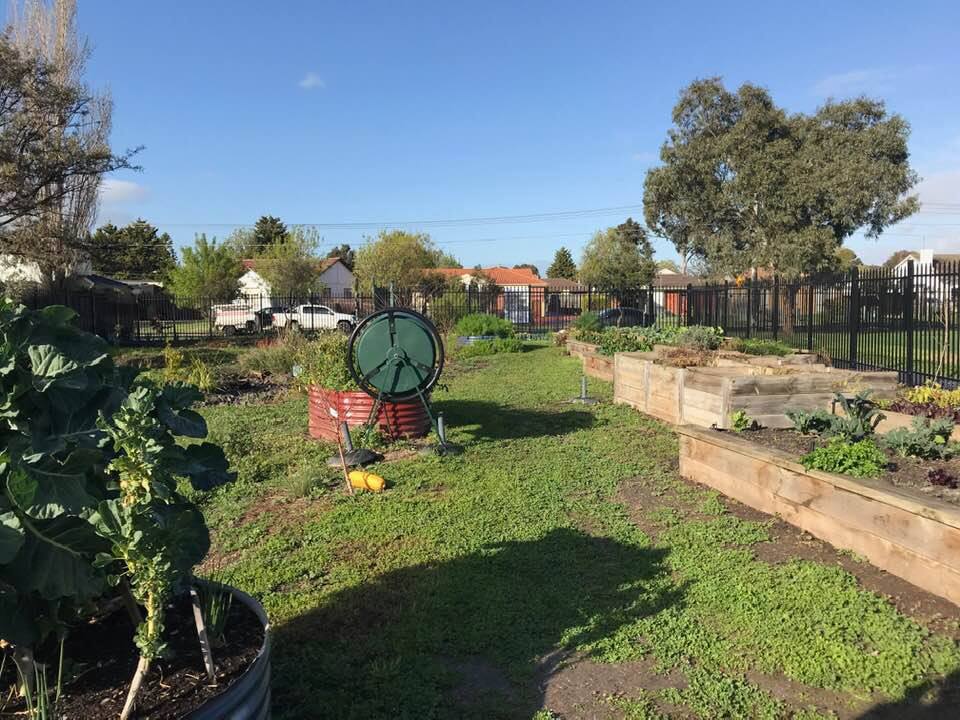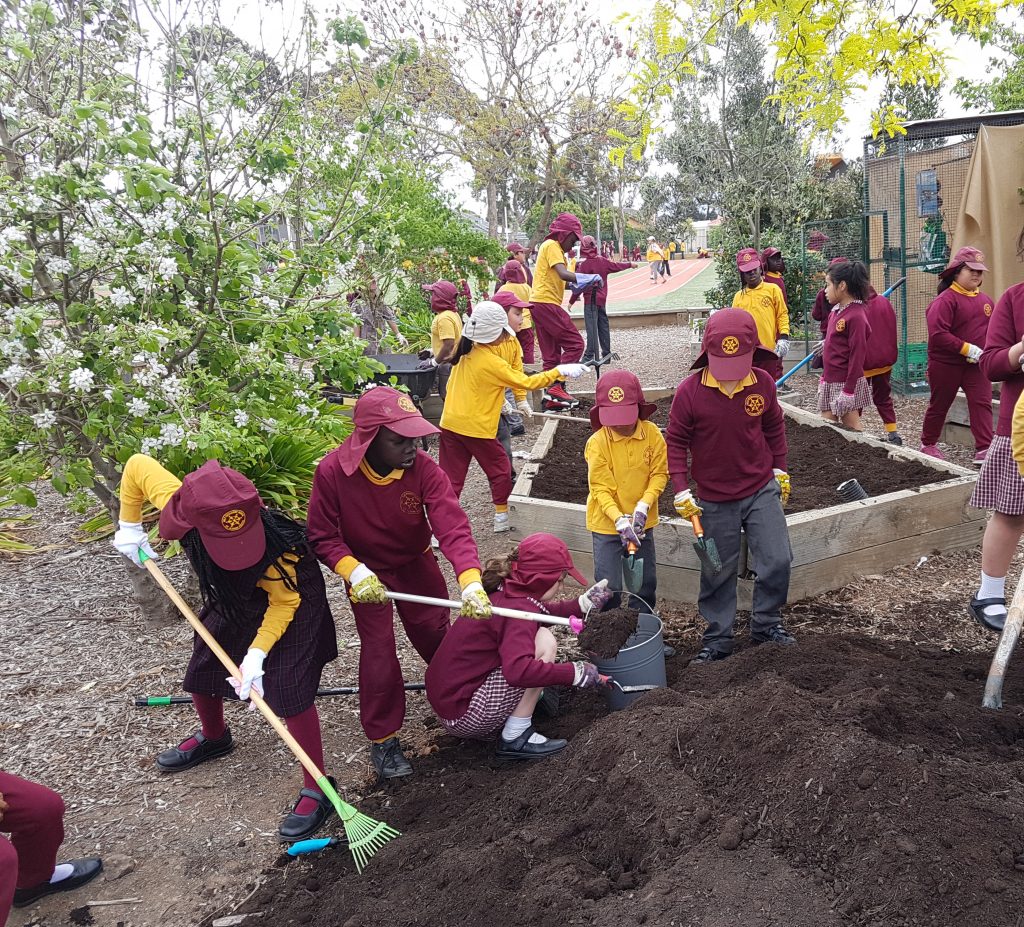Community Hubs embraces all that is great about Community Kitchen Gardens
Community gardens are vibrant places, drawing people in with their abundance. There is something magical about a community garden – you can’t help but feel good in this little pocket of nature it. Community gardens bring people together, transcend barriers and create a sense of belonging.
There are many community hubs across our network that have wonderful gardens that not only have hearty yields of fruit, vegetables and herbs and spices, but they also produce friendships, healing, well being and a sense of belonging.
Abundant gardens conjure warmth, community, team work, communication, prosperity and achievement. A recent paper published by the University of New South Wales (UNSW) showed that the benefits of community gardens go far beyond the happy result of homegrown food.
Proven Benefits to Community Gardens
The positive outcomes associated with community gardens not only straddle the physical, emotional and psychological, but they offer opportunities for learning, for healing and for connecting with others.
What makes community gardens unique as a social intervention, is that it is free to tend to (outside set up costs), requires no qualifications, transcends language barriers and is open to all – from young children through to the elderly. All that is required is a small commitment of time and a willingness to be part of something.
According to UNSW, benefits of community gardens include relaxation, incidental physical activity, opportunities to socialise within the local community. The research also confirms that community gardens play a significant role in enhancing emotional and spiritual wellbeing, as well as offering opportunities to learn about horticulture, sustainability, which in turn can lead to vocational learning, training and education.
There is a shared satisfaction and joy in an abundant harvest and a sense pride associated with the garden. The research also reported that community gardens foster a sense of community and connection.
Community Gardens in Community Hubs
Many community hubs throughout the hub network are harnessing this magical salve to modern life and creating their own community gardens. All those involved have reported that the benefits are endless.
Meadows Primary School, VIC
Maureen Leahy, Hub Leader at Meadows Primary School, runs a community garden at her hub. Hub participants engage with the garden in a variety of ways, including through play group and a ‘Cook and Learn’ class that runs each week. The garden is central to this class as participants gather produce from the garden then cook with it while practicing their English. This inspires discussions about how particular fruit or vegetables are used in their own homes or in their culture. Once lunch is cooked, the class sits down and eats together, simultaneously practicing their English language skills, and building community and connection.
The garden also plays an important role in the volunteer pathway offered at the hub. One participant explained to Maureen that his involvement in the community garden had given him enough confidence to apply for a temporary job after a long period of unemployment. By being accepted in the garden, he was able to grow from within.
Maureen is right when she says that the great things that begin in the garden and grow from there, are far beyond what we can know about. She explains why she loves the community garden so much. “For me it’s about the social… coming together, the understanding of other cultures, the understanding that we all share similar values. It gives people a chance to talk and to understand each other in their own communities.”
Chester Hill Public School, NSW
Chester Hill Public School in NSW have also enjoyed the benefits of a community garden. An indigenous garden was an important aspect of the school readiness program offered by the hub. The focus was on creating a garden that included food you would find in a traditional Indigenous diet. Program sessions included hands on activities in the garden and educational components where the Aboriginal culture was discussed with an emphasis on the benefits of native plants. Parents and children got to plant and cook and taste the food from the garden. The wonderful educational outcomes included children learning about Indigenous foods, culture and most importantly, the sacred connection to the land
Holy Eucharist, VIC
Adella Howard, Hub Leader at Holy Eucharist in Melbourne, is also enthusiastic about the community garden, reporting many benefits to including it as part of her program. She credits the garden with bringing together students of different cultures. Holy Eucharist is very diverse with students of many different cultural backgrounds. Adella noticed that the children generally did not mix or play with each other. However, once they got involved in the garden, these barriers fell away and the connections they made spilt over in to the school yard.
Peace & Prosperity Garden, Government House, Melbourne
Our Peace and Prosperity Garden in Melbourne’s Government House has also been a huge success, providing an opportunity for women to come together in a beautiful setting, tend to the garden, pick produce and cook lunch. Lunch is then shared in the cottage on the grounds of Government House. The program has been such a success that Channel 9’s Postcards covered it in their segment on Government House. You can watch it below.
Community, connection and learning are just a start to the benefits of connecting with a community garden. If you’ve been thinking about starting a community garden or getting involved in one, the research and stories from our hub leaders all show that the benefits far outweigh the work involved

